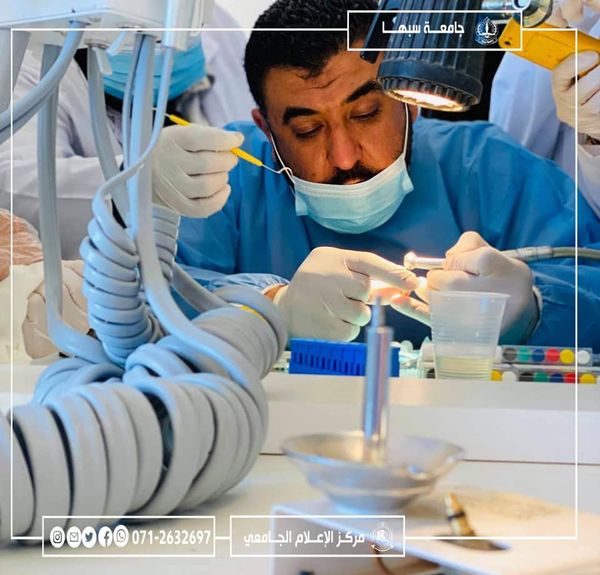Code of Ethics for Scientific Research
Ethics are considered one of the most fundamental pillars of work and life in societies. They are a necessity of civilized life and a basic requirement for organizing and stabilizing society, as mandated by our noble religion and recognized by social customs. They are framed by legislation and laws.
The Code of Ethics is broader and more detailed than the set of principles and rules included in the law. It is built upon them, elaborates on their applications and implications, and adds matters that are not addressed by legal texts, through the religious, social, and cultural norms prevailing in society.
The teaching profession is a noble profession as it plays a fundamental role in the growth and advancement of society. Therefore, practicing this profession requires adherence to virtuous and noble ethics. Sebha University, like other universities and educational and research institutions, is concerned with building and preparing individuals for their roles in life. It has included among its goals the dissemination of ethical values and ensuring their cultivation in all its programs, policies, and strategies. The university is responsible for promoting and developing ethical commitment among all its staff.


Scientific research is considered one of the highest activities that the human mind can engage in to achieve development and progress for nations. It is the natural foundation of any civilization, especially in the modern age. However, some of this research can have ethical implications that raise dilemmas concerning individuals, their social surroundings, and the environment. Therefore, many countries around the world have shown significant interest in ethical issues in scientific research, aiming to increase awareness of the importance of embracing ethics among specialized researchers and the general public. This is accomplished by establishing national committees for bioethics, as well as setting national standards and laws in this field. In 2012, the National Committee for Biosafety and Bioethics was established in Libya with the goal of promoting ethical values in scientific research.
In Sebha University, scientific research represents a fundamental pillar in the higher education system, aligned with national requirements and scientific and technological advancements. It serves a crucial and essential mission in this system, aiming to achieve the university’s vision of leadership in education, scientific research, and community service. Based on this vision, the university strives to develop its programs under an ethical code that ensures adherence to the principles and values of scientific research, as required by quality standards, and emphasizes ethical commitment in performance and relationships with others in accordance with national and international norms.
This code provides a general framework for the ethical principles and values that faculty members, researchers, undergraduate, and postgraduate students should abide by. It is essential for all parties involved in the research process to adhere to these principles in order to enhance the integrity of scientific research at the university.
The General Principles of the Code
The scientific research at Sebha University embraces the following principles and ethical values.
- Integrity : The behavior of individuals and institutions by following laws and striving for justice, fairness, and equality
- Honesty : Every right that must be fulfilled and preserved in order to safeguard and preserve rights and avoid lying and deception.
- Justice : treatment with fairness and equality.
- Objectivity: impartiality, impartiality, and impartiality from personal whims.
- Reliability : ensuring the competence or accuracy of a person and ensuring that he can be relied upon.
- Skepticism (critical): simply disbelief.
- Charity : Helping oneself and others.
- Benefit: Working to achieve the highest ratio of benefits versus harms to benefit all people.
- Transparency and credibility : disclosure and disclosure of information, clarity of procedures, validity and credibility of data presentation with all parts of scientific research from choosing the topic until publishing the research.
- Openness: sharing results, data, methods, ideas, and techniques in tools, This allows others to review the work while being prepared to accept criticism and new ideas.
- Autonomy: the exercise by rational people of free choices based on knowledge.
- Privacy : Commitment to respect personal privacy and confidence not to disclose it.
- Security and safety: The necessary precaution when conducting experiments under different circumstances and environments to ensure the safety of the researcher, the safety of colleagues, the devices and equipment used, and the security of society and the environment.
- Loyalty : dedication to work, performing it without cheating, and keeping promises and agreements related to it.
- Legitimacy: Familiarity with the laws relevant to the work framework, especially the laws and regulations that regulate universities, Moral obligation to apply the law.
- Self-respect: taking into account human rights and dignity when conducting scientific research on them.
- Quality: Working towards excellence, leadership, and continuous improvement in the completion of scientific research.
- Accountability and Accountability : The ability to provide the necessary answers and clarifications to stakeholders, bear responsibility, and be prepared to be held accountable for actions .
- Working in a team spirit: A group of individuals working in a team spirit.
- Effectiveness : Using economic and technological resources wisely to achieve the desired goals of the research.
- Experience and scientific ability: What the researcher does must be appropriate to the level of his information, knowledge, skills, and capabilities for the optimal use of the equipment and devices used in the research in a way that guarantees the chances of success of the research, achieving its goals, and preserving the university’s property.
- Partnership : Participation with educational and research institutions and cooperation with relevant national, Arab, regional and international bodies in the field of scientific research.
- Ability: The skills that an individual possesses to reach the best levels that an individual can reach in a job.
- Competence: The ability to use personal skills and knowledge in new situations within the professional field.





 Users Today : 587
Users Today : 587